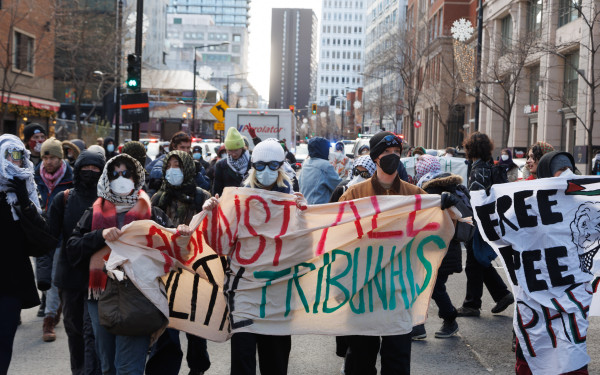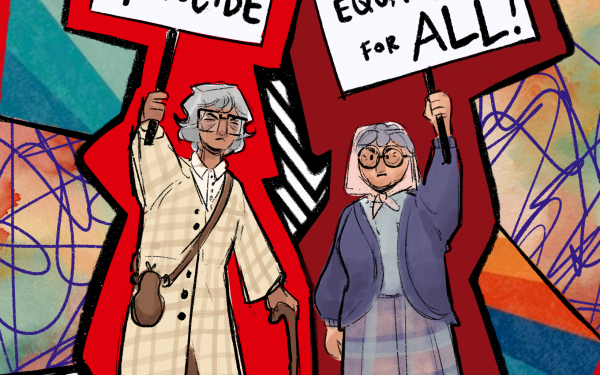Editorial: Don’t let student activism die
As Concordia University celebrates 50 years since the merger of Sir Georges Williams University and Loyola College, it is imperative to remember the decades of student activism that shaped the university into what it is today.
From the computer riots of 1969 to the ongoing struggle to keep tuition affordable for everyone, student activism has always been omnipresent on campus. As we celebrate a new school year, we, the students, must continue to recognize our power to make significant changes.
With this in mind, we bring you our first issue of Volume 45: The Student Power Issue. It has been a tradition at The Link for years to welcome you to the university with a special back-to-school Orientation Issue. However, this year—in honour of the rich student activism we saw over the last year—we decided to underline the various movements spearheaded by students.
As you flip through the pages, you will be able to familiarize yourself with the history of Concordia student activism, including a look back on the pro-Palestine encampments and even a post-mortem on the fight to divest from the South African Apartheid regime in the ‘80s.
In the last year, Concordia students have primarily been championing two causes. First, the tuition hike strikes mobilized thousands of students to protest against the CAQ government’s attack on anglophone universities.
Second, the movement to push Concordia and McGill University to divest from companies involved with Israel’s illegal settlements in Gaza and the West Bank has never been stronger and more active. However, Concordia maintains an anti-BDS (Boycott. Divestment. Sanctions) stance. University President Graham Carr said at a House of Commons committee meeting that Concordia is currently considering the implementation of a definition of anti-Semitism that would conflate it with anti-Zionism.
In over 50 years of student activism, there have been recurring instances of repression from city authorities and the university. Recently, as detailed on page 3, Concordia publicized online some of its existing behavioural guidelines. The guidelines target certain types of protest that have been prevalent on campus in the last year, such as encampments and hard-picketing classrooms. We fear the repercussions these guidelines could have on the future of student activism and protests—which often need to be disruptive and inconvenient to be impactful.
These guidelines were created to muzzle our loud activists and deprive students of their right to peaceful protest. Guidelines like this are authoritarian. Concordia is trying to suppress its students in an attempt to maintain its reputation and quash criticism.
We at The Link believe that Concordia University needs to be a space that fosters civil debate and supports its students beyond the classroom. It should aim to learn from its students as much as its students learn from it.
As is our duty on campus, The Link will continue to dutifully report on these matters, many of which you can learn more about in this issue.
We have also included some resources and organizations to help you get started at Concordia. There is also a breakdown of student politics that will benefit you once the CSU general elections come around.
At The Link, our mandate to uphold students’ rights and advocate for marginalized voices has never wavered. It has only strengthened. Throughout 2024-2025, you will be able to find us on stands every other week, fearlessly working to provide you with the best community reporting we can offer.
We hope this issue serves as a reminder that the students—for as long as they remain critical, determined and, most importantly, united—will never be defeated.
This article originally appeared in Volume 45, Issue 1, published September 3, 2024.

_(1).png)





